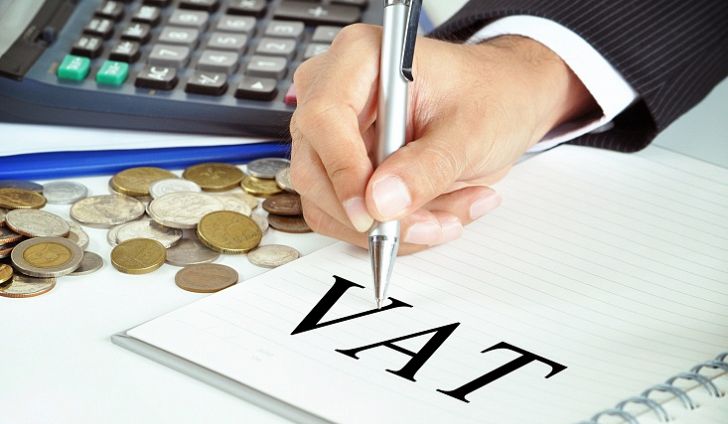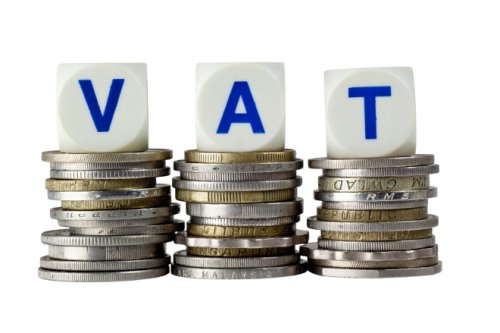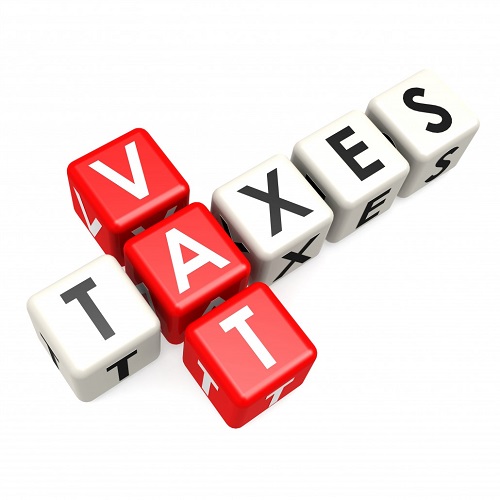New Amended Law On VAT
The Amended Law on Value Added Tax Law (No. 48/NA, dated 20 June 2018) (“Amended Law on VAT”) was posted on the Lao Official Gazette on 4 December 2018 and is effective from 18 December 2018.
The key important points to note from the Amended Law on VAT has been summarized in this client alert.
1. Who does the Amended Law on VAT apply to?
The law applies to individuals, legal entities or organizations who operate business activities under the Value Added Tax (“VAT”) system, customs authorities and purchases of goods and services from non-residents or residents that are not registered in according to the laws of the Lao PDR.[1]
2. What are the filing dates for VAT under the Amended Law on VAT?
For individuals and businesses carrying on business in the Lao PDR, the filing date is the 15th day of the following month.[2] VAT on imports will be paid at the time of importation.[3] For payments relating to services from non-resident suppliers, the filling date is the 15th day of the following month for individuals and businesses in the VAT system and within 15 days from the date of payment for individuals and business that are not in the VAT system.
3. What are deemed to be taxable supplies for VAT purposes in the Lao PDR?
The following are a list of the taxable supplies as provided for in the Amended Law on VAT:[4]
(i) Importation of goods;
(ii) Supplies of goods and services in the Lao PDR by individuals, legal entities or organizations who are registered under the VAT system in the Lao PDR;
(iii) Supplies of service by non-residents who are not registered in the Lao PDR;
(iv) Supplies of services outside of special economic zones;
(v) Supplies of goods and services by electronic means.

4. Are there any supplies that are deemed exempt from VAT under the new law?
Yes, the Amended Law on VAT provides a large list of items that are exempt from VAT in the Lao PDR. These include items such as:[5]Health and life insurance, equipment and machinery used in agriculture, materials and equipment that could not be produced in the Lao PDR and machinery that is to be used as fixed assets in production; goods for embassies and international organizations in the Lao PDR (however, pre-authorization by the relevant Ministry is required), learning and teaching text books, animal medicines, medical tools and equipment for hospitals and health centers; deposit and lending interest and financial transactions of commercial banks, etc.
5. Where is the deemed place of supply of goods and services?
The Amended Law on VAT includes a number of special rules that are used to determine where the supply of the goods or services occurs for VAT purposes. These rules include:[6]
(i) The place of supply of goods that are not transported is deemed to be where the goods are at the moment of supply;
(ii) If goods supplied that includes installation or assembly, the supply is deemed to take place where the installation or assembling takes place;
(iii) For services, the place of supply will be where the receiver of the services has their usual evidence and is established;
(iv) Consulting services that relate to information in the Lao PDR will be Lao PDR regardless of where the receiver of the service resides;
(v) Post and telecommunications services are in Lao PDR if the supplier is established in the Lao PDR irrespective if the receiver is located abroad;
(vi) Services that relate to immovable assets such as design, maintenance, repair are deemed to be in Lao PDR if the assets are located in the Lao PDR;
(vii) Tourism services sold as a package is where the tours take place.
6. How do I calculate the VAT amount?
Depending on the goods or services supplied there are a number of ways that VAT can be calculated. These include:[7]
(i) For imported goods, the taxable amount is the actual transaction cost (CIF) plus any import duties and any excise tax. The VAT is then calculated on this total amount;
(ii) For domestically sold goods the taxable amount is increased by any excise tax;
(iii) The supply of services is the actual value of the services whether sold domestically or from a non-resident;
(iv) Goods and services that are used for self-consumption or has been given away for free or bartered will be the market value plus any excise tax.

7. What are the rates of VAT under the Amended VAT Law?
There are only two rates of VAT:[8]
(i) Ten percent (10%) for imports and the supply of goods and services within Lao PDR; and
(ii) Zero percent (0%) for the exporting of goods to other countries
8. How far back can a taxpayer be liable for VAT that was incorrectly calculated?
The Amended Law on VAT provides that tax officials can reassess for three years.[9]
9. Are VAT input credits or deductions are available under the Amended VAT Law?
Yes, the Amended Law on VAT follows the international VAT system where VAT paid on purchases can be offset with VAT on sales. The Law provides that deductible input VAT is input VAT that is directly related to goods and services used in production, business operations or supply of services that are subject to VAT. [10]
10. What are the requirements to be claim VAT deductions?
The Amended Law on VAT provides a number of requirements for VAT to be deductible including having proper invoices. The law now provides that were a deduction is not claimed within three months, it is possible to apply for a refund.[11] However, it is not exactly clear how this is going to work in practice and what will be the process for obtaining such refunds.

11. Are there any supplies which VAT which is not creditable / deductible?
Yes, the Amended Law on VAT specifically provides for certain categories of supplies which cannot be claimed as VAT credits. These include: non-business and personal expenses, electricity and other utilities which are not used in the main business of the enterprise, expenses with no proper invoices, expenses relating to personal computers, tablets and mobile phones.[12]
12. Can a VAT refund be obtained under the Amended Law on VAT?
Yes. The law provides for certain persons that can be eligible for a refund of VAT. These persons include businesses that are exporting goods, businesses that merge or cease activities, businesses that have not claimed deduction for VAT credits within three months from the date that the VAT was due, international organizations and embassies that have been certified by the Ministry of Foreign Affairs, tourists at international airports in the Lao PDR who have bought goods in Laos for consumption in other countries, businesses and individuals who have overpaid VAT.[13]
13. What are the requirements for applying for a VAT refund?
A request for a VAT refund should be made on a monthly basis and must not exceed three months from when the VAT was incurred. For exporters this would be monthly and for the case of a merger or cease of business should be within three months from the date that a written decision has been made regarding the ceasing of the business. [14] To claim a refund of VAT, individuals or businesses need to prepare accounting in accordance with the requirements of the Law on Accounting, use invoices in accordance with the regulations on invoices and make payment through the banking system in the Lao PDR.[15]
If you have any questions on how the New Law may impact on your business or have any queries, please feel free to contact us for a discussion.
[1] Amended Law on VATNo.48/NA, 20 June 2018, Article 10
[2] Ibid, Article 30 (1)
[3] Ibid, Article 30 (2)
[4] Ibid, Article 11
[5] Ibid, Article 12
[6] Ibid, Article 13
[7] Ibid, Article 15
[8] Ibid, Article 17
[9] Ibid, Article 19
[10] Ibid, Article 22
[11] Ibid, Article 23 (3)
[12] Ibid, Article 24
[13] Ibid, Article 25
[14] Ibid, Article 28
[15] Ibid, Article 27
This update is courtesy of our valued member DFDL. The information provided in this email is for information purposes only and is not intended to constitute legal advice. Legal advice should be obtained from qualified legal counsel for all specific situations




